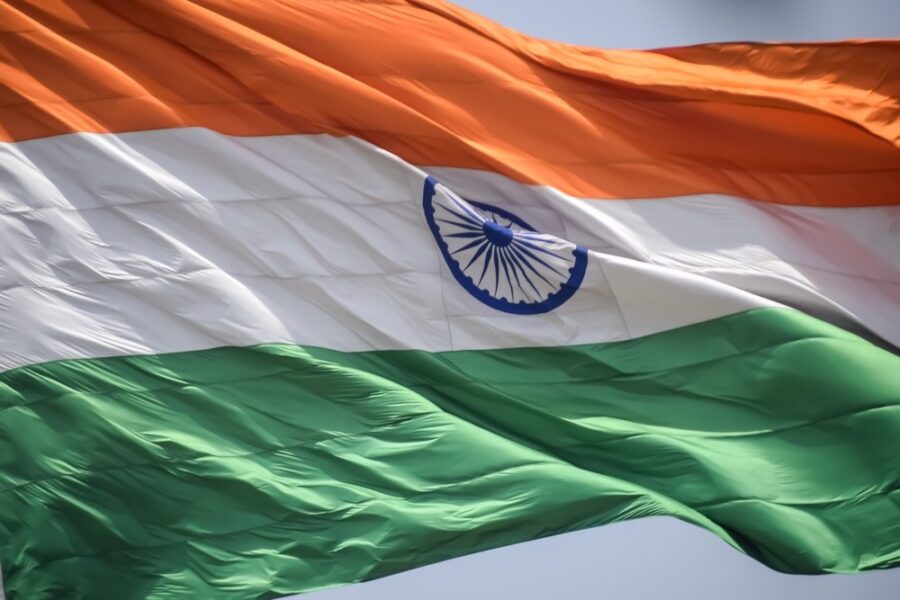Indian authorities arrest gambling executives over money laundering

India’s financial crime unit, the Enforcement Directorate, has arrested Saumya Singh Rathore and Paavan Nanda, founders of esports platform Winzo, for operating an illegal online gambling service.
According to sources at the Enforcement Directorate, the Times of India reports, the pair were moving the proceeds of crime to the US, where they planned to move the gambling operation.
During a hearing on the remand application in Bengaluru, counsel for the Enforcement Directorate informed the court that the accused had also used algorithms to manipulate games and prevent players from winning, while attracting players from Brazil, Germany, the US, and India.
It was alleged that the profits from the rigged games were then moved to the US and Singapore, using subsidiaries of Winzo Games US. The balance of the company’s foreign accounts was reported to be US$55 million.
The arrested men have been remanded to the custody of the Enforcement Directorate and have had their assets, which include bonds, fixed deposits, and mutual funds, frozen.
The Indian Supreme Court has recently sought the central government’s response to a public interest litigation, which seeks a national ban on online gambling platforms that operate under the guise of e-sports or social games.
Charlotte Capewell brings her passion for storytelling and expertise in writing, researching, and the gambling industry to every article she writes. Her specialties include the US gambling industry, regulator legislation, igaming, and more.
Verticals:
Sectors:
Topics:
Dig Deeper
The Backstory
Why the arrests matter now
Indian regulators have escalated their campaign against illicit online betting just as the sector expands and blurs lines with esports and social gaming. The Enforcement Directorate’s latest move — the arrest of two prominent gaming founders — lands amid a broader government push to disrupt money flows, curb game manipulation and force transparency across digital platforms. That pressure has intensified as officials warn that rapidly growing real-money gaming risks outpacing oversight, with advertising and payments networks helping banned operators rebrand and resurface.
The context is a widening series of actions at home and across Asia. Regulators from Manila to Jakarta are linking illegal gambling to cross-border money laundering, crypto-based transfers and social harms. India is also tightening scrutiny of Big Tech intermediaries whose ad tools and distribution channels can be used to funnel users toward illegal sites. These concurrent shifts help explain why enforcement bodies are moving faster and demanding more accountability from platforms, payment partners and promoters connected to the gaming economy.
India turns the screws on platforms and promoters
New Delhi has signaled it will not limit enforcement to operators alone. The Enforcement Directorate has summoned Google and Meta executives as part of a money laundering probe into banned betting platforms that continue to advertise, often via celebrities and influencers. Officials plan to record statements under the Prevention of Money Laundering Act and are seeking documents on how ads for proscribed apps still reach users despite repeated government warnings.
The market backdrop is substantial. Industry estimates suggest India’s online gaming sector could top $9 billion by 2029, driven largely by real-money games. That growth is drawing capital and users, but it is also attracting enforcement attention as authorities examine tax compliance, foreign exchange controls and suspected game manipulation. The push to hold advertisers and amplifiers liable — not only the operators — raises the stakes for tech firms, agencies and celebrity endorsers who face potential summons if promotions enable prohibited services.
Regional crackdowns expose cross-border money flows
Across Southeast Asia, coordinated raids and intelligence sharing are increasingly common as authorities track networks that operate servers offshore and convert proceeds through layered financial channels. Indonesian police, for example, detained 22 suspects in a China-Cambodia operation, saying organizers ran sites on overseas servers, mass-created WhatsApp accounts and laundered profits via third parties and crypto. The arrests were detailed in a report on the Tangerang, Bogor and Bekasi raids, with further background from state media on how key suspects allegedly netted up to RP20 billion in under a year (Antara).
These operations underscore how illegal gambling often functions as a cross-border financial scheme as much as an entertainment product. Marketing, payments and hosting are distributed across jurisdictions, complicating enforcement. That dynamic mirrors Indian investigators’ claims about funds routed through foreign entities and converted into digital assets. It also aligns with the global shift to treat unlicensed gaming as part of a broader anti-money laundering challenge that spans banks, fintechs and ad tech.
Philippines’ pivot on POGOs reshapes the risk map
The Philippines has been remaking its gaming landscape after offshore operators drew sustained scrutiny over illicit finance and trafficking allegations. Manila rebranded POGOs as Internet Gaming Licensees in late 2023 (Inside Asian Gaming), then moved to ban the sector with immediate effect last year (Inside Asian Gaming). Regulators say the crackdown helped the country exit the Financial Action Task Force’s gray list in February 2025, but they are not easing up. The Anti-Money Laundering Council is running a fresh risk assessment of online gambling to preempt new channels for illicit finance as digital play surges.
That vigilance follows a series of cases that illustrate the stakes. Prosecutors have approved dozens of money laundering counts against a former local mayor tied to an alleged POGO hub, with accusations spanning gambling-related flows, crypto schemes and human trafficking. The Justice Department’s move against former Bamban mayor Alice Guo reflects how authorities are testing the full scope of anti-money laundering law to deter public officials and private accomplices from facilitating illicit operations.
Even as regulators tout record gaming revenue — online play jumped more than threefold in 2024 under state oversight — senior officials warn that digital betting remains a vector for illicit funds. The Anti-Money Laundering Council’s expanded scrutiny and calls for stronger public-private cooperation show the government is trying to lock in FATF gains while the market’s digital shift accelerates.
Compliance lapses hit global operators
Beyond illegal outfits, established brands are facing tougher tests of their defenses. In Australia, the federal financial intelligence unit has taken a major bookmaker to court alleging systemic failures in its anti-money laundering program. The case has already triggered senior departures, including the resignation of Entain’s Australia finance chief following earlier exits. Regulators claim the operator did not properly assess and mitigate risks, leaving it exposed to criminal exploitation.
The message from Canberra to New Delhi is consistent: programs on paper are not enough. Authorities are seeking evidence that firms can identify suspicious behavior, manage high-risk customers and prevent their systems from being used to disguise proceeds of crime. For Indian platforms, that scrutiny now extends to game design, algorithms and payout mechanics, as well as to the corporate structures that move funds offshore. For global operators, it reinforces that compliance gaps can cascade into leadership changes, litigation and limits on market access.
The through line: growth, gray zones and accountability
Taken together, the Indian arrests, Indonesia’s raids and the Philippines’ reset illustrate a region converging on the same problem: fast growth has opened gray zones that criminals exploit, and enforcement is trying to catch up across borders and business models. India’s latest actions sit squarely in that arc. Investigators are tracing alleged manipulation and money flows, regulators are pressing intermediaries to help choke off distribution and prosecutors elsewhere are pursuing public officials accused of enabling illicit networks.
The stakes are commercial as well as criminal. If India’s market reaches multibillion-dollar scale by decade’s end, firms that survive will be those that can prove robust controls, transparent game mechanics and clean advertising practices. The region’s trajectory — from Manila’s sweeping ban to Jakarta’s coordinated raids — suggests that permissive regimes are fading. Companies that treat compliance as integral to product and growth strategy, not a patch, will be best positioned as regulators keep raising the bar.








